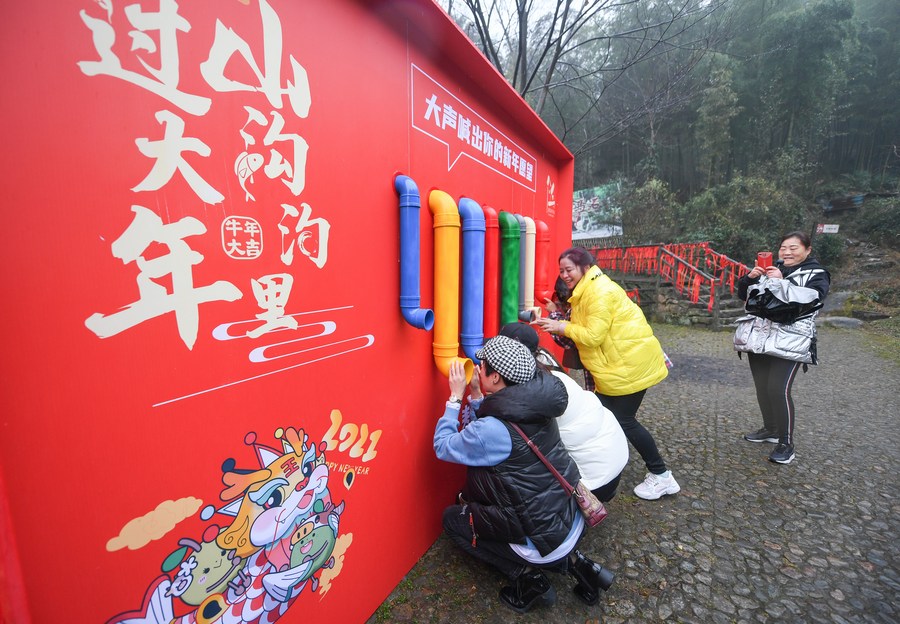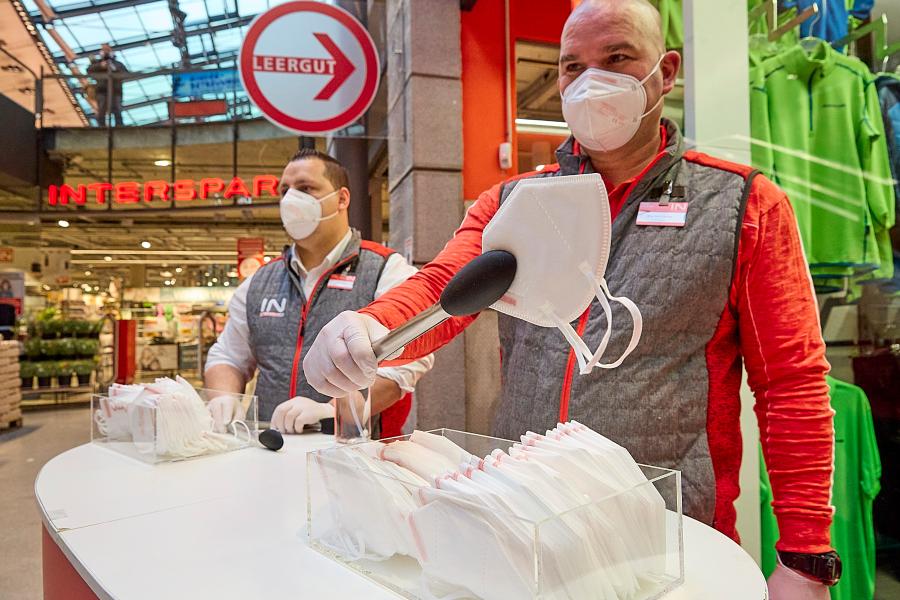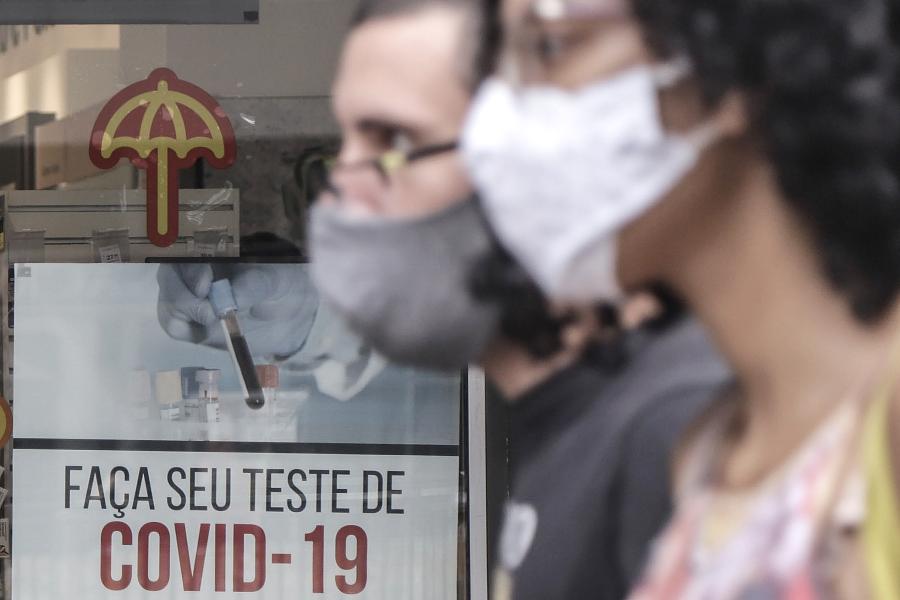Chinese people are embracing their most important festival this year with a variety of planned celebrations, despite the recent local resurgence of coronavirus in some areas.
BEIJING, Jan. 27 (Xinhua) -- Although Yang Yang likes traveling, the Beijinger has decided to stay at home for the upcoming Lunar New Year, or Spring Festival, which falls on Feb. 12.
The bank employee has preordered takeaway from one of China's best-known roast duck chain restaurants Quanjude for his family banquet on Spring Festival's eve.
"It's the family atmosphere that matters for the celebration," said Yang, 34.
Compared with last Lunar New Year, when their family trip to the resort province of Hainan was shortened by the epidemic, Yang feels more at ease. "After a year's efforts in containing the spread of the virus, we have become used to life with prevention and control measures," he said.
Chinese people are embracing their most important festival this year with a variety of planned celebrations, despite the recent local resurgence of coronavirus in some areas.
The Chinese mainland on Monday reported 82 newly confirmed COVID-19 cases, including 69 locally transmitted and 13 arriving from outside the mainland, the National Health Commission said Tuesday.

Visitors shout out their new year wishes besides a wish wall in the ancient Maotang Village in Yuhang District of Hangzhou, capital of east China's Zhejiang Province, Jan. 22, 2021. (Xinhua/Xu Yu)
GROWING FESTIVE ATMOSPHERE
In Wuhan, capital of central China's Hubei Province, festival decorations have filled the grocery shelves at the Gemdale Plaza, Hongshan District. Promotional activities have started for gifts including candies, nuts, dairy products and fruits, drawing customers.
Some vendors said they have been busy since early January as an increasing number of customers came to shop in preparation for the festival.
Wearing a mask, Ma Yu, from the city of Huanggang, packed her shopping cart with oil, rice and flour. She also bought red couplets, a tradition for the festival, to decorate her apartment.
"My husband and I have planned to stay put given the epidemic, but the festival atmosphere should not be missing," said Ma, a clerk in a Wuhan company.
While some people like Ma have chosen to stay where they are, others are heading home taking various precautionary measures.
Guo Haotian, who works in an IT company in Beijing, has bought a train ticket home to the city of Jincheng, Shanxi Province.
"It's a pity that I didn't return home for the festival last year because of the epidemic," said Guo, 27, adding that he decided to return this year partly because a new high-speed railway has halved his travel time from Beijing to his hometown to five hours.
He has acquired a negative result from a nucleic acid test he has taken within seven days of his trip and will undertake a 14-day home observation.
"Although I cannot visit my friends or extended relatives, it's a precious opportunity to stay with my parents," he said.
To cope with the heightened transmission risk that comes with mass migration, the National Health Commission is requiring people to have a negative result for COVID-19 taken within seven days of returning to rural areas, as well as 14-day home quarantine upon arrival.
The Ministry of Transport estimated that China is expected to see around 1.7 billion passenger trips, up more than 10 percent from 2020, during the 40-day Spring Festival travel rush starting from Jan. 28.













